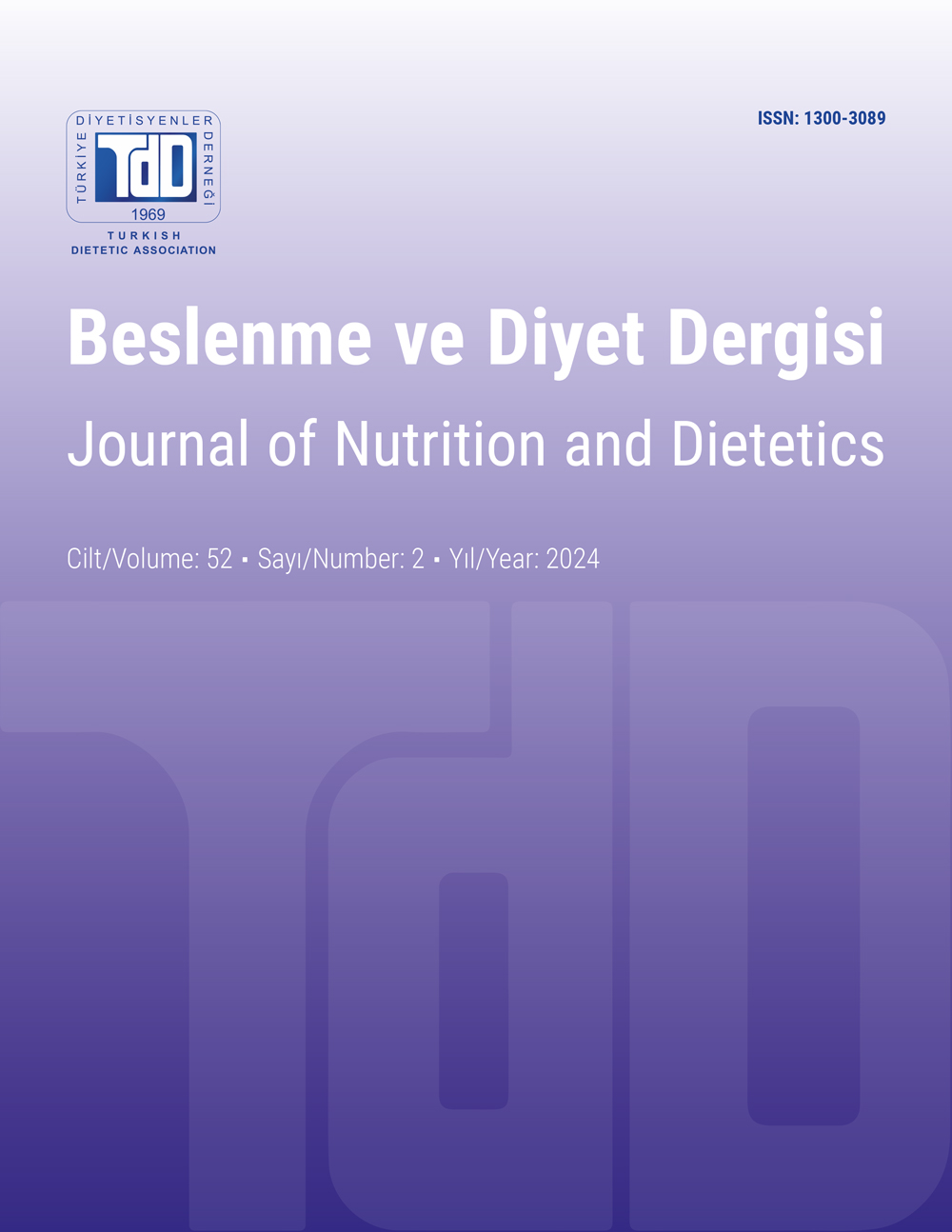Evaluation of Postprandial Effects of Mediterranean Diet and Western Diet Meal Models on Thiol-Disulfide Homeostasis
DOI:
https://doi.org/10.33076/2024.BDD.1829Keywords:
Mediterranean diet, Western diet, postprandial status, oxidative stress, nutritionAbstract
Aim: This study was conducted to evaluate the postprandial effects Mediterranean diet (MED) and the Western diet (WD) meal models on thiol-disulfide homeostasis.
Subjects and Method: The study was conducted as a randomized controlled cross-over study with 11 healthy females between 19-45 years, non-menopausal, and of normal body weight (BMI=20.0-24.9 kg/m²). Participants were given standardized MED and WD test meals after a 12-hour fasting, with a two-week washout period between. Blood samples were taken before meal consumption (baseline, 0 hour) and at the 2nd, 3rd and 4th hours postprandially. Total thiol and native thiol serum levels were measured using the spectrophotometric method. Half of the value obtained by subtracting the native thiol value from the total thiol value was determined as the disulfide level. Disulfide/total thiol, disulfide/native thiol and native thiol/total thiol ratios were calculated.
Results: Serum total thiol levels of the participants increased at the 2h and 4h compared to the baseline level after MED meal consumption (p=0.013, p=0.023), native thiol levels increased at the 2h and 3h (p=0.027, p=0.025). After MED meal consumption, serum disulphide level between the beginning (0h) and 2h, 3h and the general difference between the times were not significant (p>0.05). Disulfide level increased from the baseline to the 3h after WD meal consumption (p=0.045). Postprandial disulfide/total thiol, disulfide/native thiol and native thiol/total thiol ratios didn’t change significantly compared to the baseline level (p>0.05). However, it was observed that the mean values of the difference following meal consumption were higher for each hour after consuming WD meal compared to the consumption of MED meal.
Conclusion: Compared to the MED meal, it was determined that consumption of WD meal negatively affected thiol-disulfide homeostasis. Studies with larger participants are needed to confirm the effect of different dietary patterns on thiol-disulfide homeostasis.

